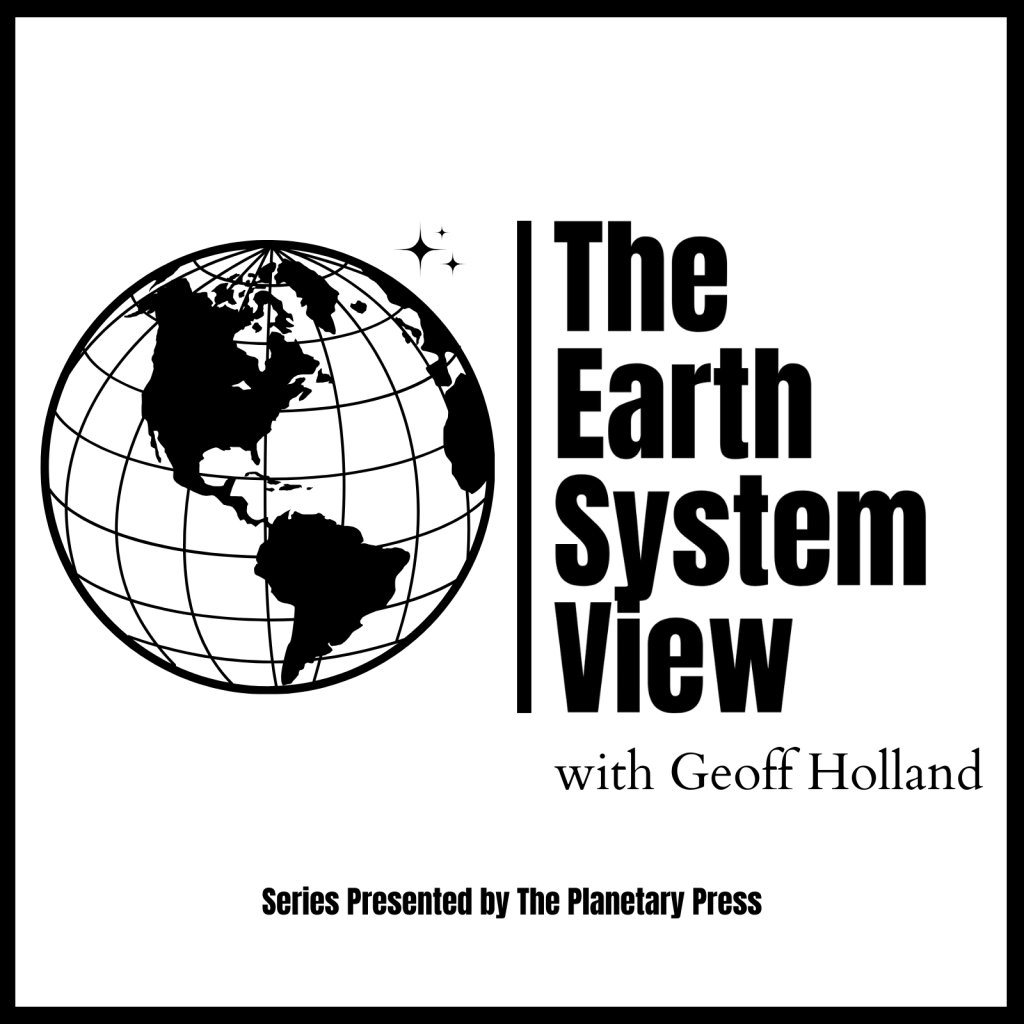
The Decker Professor in the Humanities at Johns Hopkins University, William Egginton, is the author of 13 books, including “The Man Who Invented Fiction.” His latest book, “The Rigor of Angels: Borges, Heisenberg, Kant, and the Ultimate Nature of Reality,” was named a New Yorker and New York Times Best Book of the Year.
Professor Egginton’s research and teaching focus on literature, intellectual history, and the relation between literature and philosophy. His works plum the cultural nexus of literature, science, and the evolution of the human species.
Geoffrey Holland: In “The Man Who Invented Fiction,” you focus on the novel “Don Quixote,” written some 400 years ago by Miguel de Cervantes. Your analysis declares “Don Quixote” to be the first work of modern fiction. That is a lot to live up to. Can you summarize what brought you to this conclusion?
William Egginton: Absolutely. So, a lot of scholars— in fact, the vast majority of the history of scholarship— have talked about the novel “Don Quixote” as the first work of modern literature, as the first modern novel, and this has its own accuracy. The novel is, in some ways, a modern form, but that description is really a genre description. It talks about the novel as an extended story with a certain unity over a certain amount of time with a focus on characters. What interested me about “Don Quixote,” in particular, is that Cervantes was doing something that I considered to be radically new with characters themselves and what he was doing, and this is why I called it fiction. Cervantes was engaging with a way, a kind of expectation that the audience today is going to naturally hold for fictive characters.
What is that expectation? Let’s put it this way: when we talk about fiction as being good, as being effective, when we say that a fictional novel has caught our attention in some way, we are able to identify with the characters in that fiction as if they were real while knowing perfectly well if they’re not. We know they’re invented, but we treat them as if they’re real. So, in essence, what we’re doing is we’re dividing ourselves. We’re dividing ourselves and maintaining a kind of contradictory state with regard to the story characters. On the one hand, we know perfectly well that they’re not real. However, we invest in them with enough of our emotions and our beliefs that we can be affected by them right to the point that we can laugh with them, or at them, or, in fact, even more to the point, cry when they suffer setbacks or losses or sadness.
The idea of empathizing with literature, the point of crying or losing oneself over it, was definitely not something that was new. What was new in Cervantes’ time was the idea of being able to do so while perfectly understanding that this was a whimsical creation— that these characters did not exist at all. Cervantes was the master of this. He wasn’t the absolute first to do it, but he combined all of the different elements that create modern fictional characters in the first massive international bestseller, “Don Quixote.” After Cervantes had done that, his fiction model caught fire. His model of writing characters, characters who, in essence, come off the page, who become real, three dimensional. The reader can identify with them and stand in their shoes. The reader can feel the things that they are feeling, can relate to their blindness about the world, and can share their bewilderment about the world, all the while knowing that the characters are completely fictional creations. That’s what was new in Cervantes’ time.

GH: Could you name other works of literature that have been historically transformative to the human culture and why?
WE: There are so many and for so many different reasons. So, we can talk about a much earlier form of, I would say, quasi-fictional writing, something very similar in some ways. People who have studied the history of Asian literature have made this claim for the “Tale of Genji,” a Japanese novel that was written a good 500 to 600 years earlier than “Don Quixote,” as having that sort of status. I would say, outside of the realm of the genre of the novel, a work like Dante’s “Divine Comedy” would be of equal importance in size and power, but in a very different way— not in the sense of creating such fictional characters, but really of using a poetic interface between the author, Dante, and his readers to explore the most important questions of theology, of cosmology, of good and evil.
I would think of “The Dialogues of Plato,” which are fictional in many ways because they’re Plato’s fictionalization. They are literary because they’re his recollections of his teacher Socrates’ teachings and conversations in the marketplace of Athens. But that really set the stage, set the groundwork, for all of Western philosophy to come after that. Speaking of philosophy, Descartes highly autobiographical ruminations in works like his “Meditations” or the “Discourse on Method,” which, for their part, set the groundwork for modern philosophy. So, these give some different views from varied angles— examples of the kinds of works of literature in all sorts of different ways that have had that kind of impact.

GH: Our Earth’s biosphere is increasingly failing under the massive weight of human demand. Political polarization and tribalism define life in the 21st century. Have we come to the end of the road with that kind of cultural dynamic?
WE: I sure hope so. I would very much agree that political problems are at the root of and continue to exacerbate what we’re doing to the planet. And we can’t solve problems as massive as the destruction of the world that we’re living in— which is ongoing and, in fact, accelerating at all times— without learning to communicate with each other, to agree upon basic standards of evidence, to come together, to formulate extremely complex solutions that are long term, both in their planning and in effectuating them, and ultimately in their outcomes. That kind of long-term thinking that involves coordinating different people with different agendas across different cultural divides of all kinds is impossible if you’re not, in fact, learning to communicate with each other, learning to negotiate with one another to understand people’s interests across borders. None of that is possible without deep cultural knowledge, which is one of the reasons why science alone isn’t going to be able to solve the problems that we’re faced with right now. Our world desperately needs political solutions, and those political solutions must come with cooperation and cross-cultural commitment.
GH: One of our world’s most venerated voices for nature, Jane Goodall, has stated that ‘stories’ are a powerful way to inspire the kind of cultural changes humanity desperately needs. Does that reflect what you have learned over several decades of studying literature and its impact across human societies?
WE: Very simply, yes. As a species, we think and understand in terms of stories. Even some of our greatest inventions in the physical sciences have come about by great minds thinking about the world, thinking about their endeavors in narrative terms, and thinking through stories. I offer this example. It’s a very famous example of Einstein coming across what he called his greatest thought. His happiest moment came when he figured out the principle of equivalence that would lead him to the general theory of relativity. He did so by creating a story in his mind. It was a story of a man who is in a box being pulled by a rocket in space and isn’t able to see outside. He recognizes that he’s being pulled at a constant acceleration rate. This way of thinking about it and imagining the man inside the box being pulled at a constant rate of acceleration is what enabled Einstein to visualize the mathematics and develop the most powerful physical theory of the 20th century.
I think Jane Goodall is exactly right. Stories are necessary for making important inroads and for visualizing the most abstruse and the most complex— mathematically speaking— fields of our knowledge; then, absolutely, stories are relevant to everything that we do. We come to understand the world through stories. We communicate with each other through stories that grab our interest. Stories hook us. They allow us to empathize with each other. So, the cultural role of stories is one of the most important reasons why I consider studying literature, along with philosophy, history, and the humanities in general, to be so important in these unprecedented cultural moments.

GH: Early in the 21st Century, in unprecedented ways, humans are linked cross-culturally by computers, cellphones, the internet, and social media. Ever more, there is recognition cross-culturally that we humans face global-scale existential threats that must be addressed with a global common purpose. Can progressive messaging that encourages common purpose on social media prevail over the old guard using wealth and privilege to manipulate the same social media to serve self-interest?
WE: Yes, I think it can. I think it must. However, the second part of the question, what needs to be prevailed over, is exactly right. Because social media, as we’ve learned through a kind of slow and painful process, or maybe even fast and painful process, is not capable on its own of carrying the promise that it originally suggested, a promise of the breaking down of tribalism, of borders, of learning to get past our individual differences, regardless of social status, and connecting with each other and finding ways to get along. We see that entrenched economic and political interests were very quick to learn how to manipulate social media.
Our very ideas of shared common values and truth have been broken down precisely by the misuse of the very same tools of social interaction that the new media offers us for creating communities. So, that means everything requires active and thoughtful negotiation and curation. People who want to encourage and inspire positive change need to use the same tools that are being used against us. Most importantly, we need to understand how these tools are being used against us because it’s not clear when the media is impacting our very notion of reality that it’s being co-opted by the media to mislead.
In order to communicate, the media create frames inside and outside of the frame. We assume we’re talking about something that’s on the inside, and we forget what’s on the outside, and bit by bit, we forget that, in fact, outside the frame, which includes us, this assumed reality, that we have, this assumed space that we share together, is itself being doctored, messed with. Our ideas about it are being manipulated. So, one of the things that we have to do is learn to recognize this in our educational practices.
And I think about this as an educator, as a teacher, how to cultivate a sense of what my colleague, David Castillo, and I call reality literacy. We don’t just need to be literate about media. We need to be literate about how media are always filtering, how we understand reality itself, and by learning the practices of literary criticism, of taking up a novel as a piece of literature and understanding its message. What is the presupposition that this form of media plants in our mind about how the world works or should work? In order to engage with this particular medium or with this particular work of literature, we need to take a step back and ask are those conventions ones that we want to accept? These are the same processes that we need to learn how to bring with us in every media engagement.
So, when I get online, and I’m watching a video that someone has sent to me, or when I’m reading a tweet, I’m always asking myself, what are the conventions that are presupposed by my even understanding of this Tweet in the first place? What am I implicitly accepting, and should I be accepting that? So, this is a practice that I think is going to be incumbent on all of us to share information, and to communicate with each other.
GH: Are these times ripe for stories that transcend and inspire with visions of what we are and what we can become if we stand together with a common purpose?
WE: Anytime is the right time for stories that inspire and transcend. My concern is that there’s also the potential for exactly the opposite. These times are ripe for the kind of manipulation of the media that I was just talking about, that convinces groups that if they just accept what that particular purveyor of information tells them, and they fight off everyone else, their salvation will be on the way, and that’s the most dangerous kind of delusion.
We need messages that help us understand that we are all in this struggle together, that we share common ground— that is the very Earth that we live on— that common strategies have to be adopted in order to save, cultivate, and cherish this common natural wealth that we have, which is this Earth that we all depend on. So yes, the time is very much ripe for narratives that both entertain and engage readers, viewers, and listeners, but at the same time, vitally, lead them to new insights and to greater levels of empathy for others and the world we inhabit.

Hosted by author and veteran Stanford MAHB journalist Geoff Holland, The Earth System View explores the progressive idea of an Earth System Treaty as a solution to our planetary challenges.







